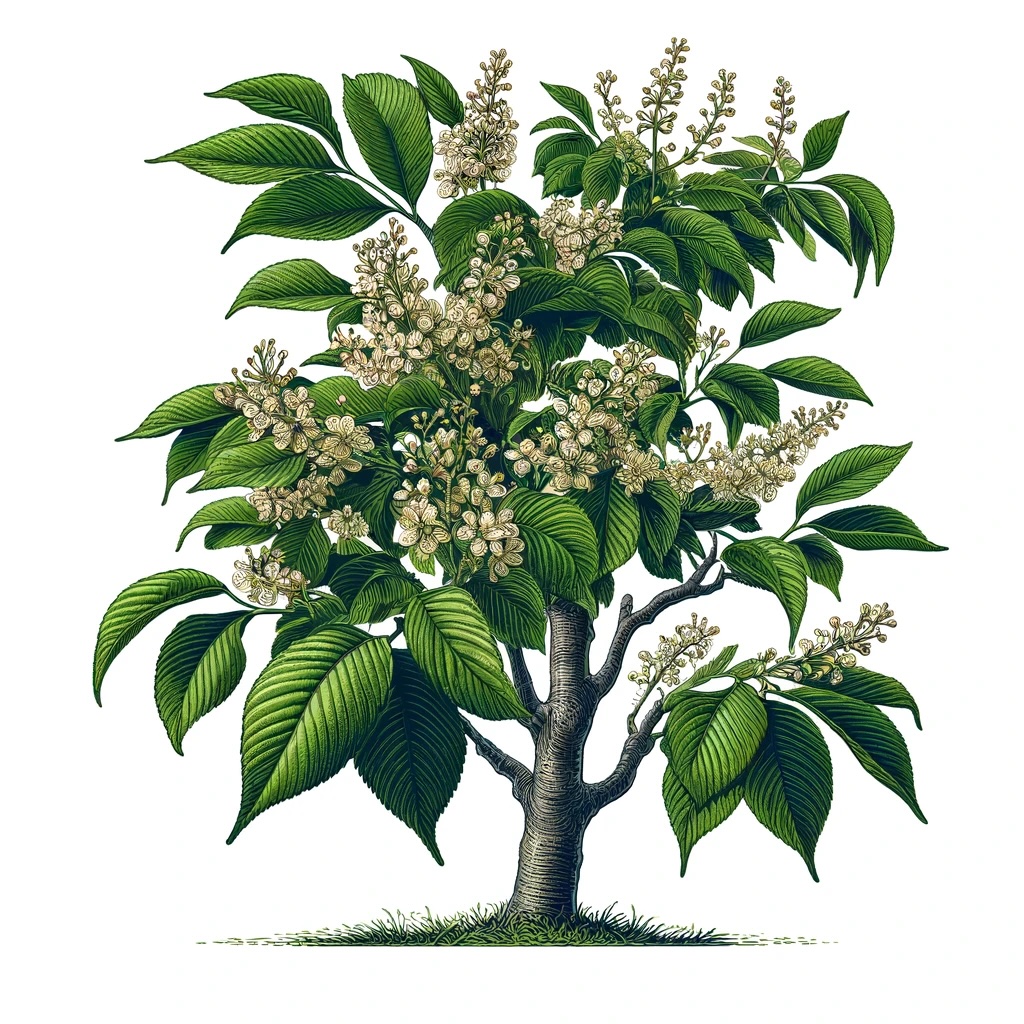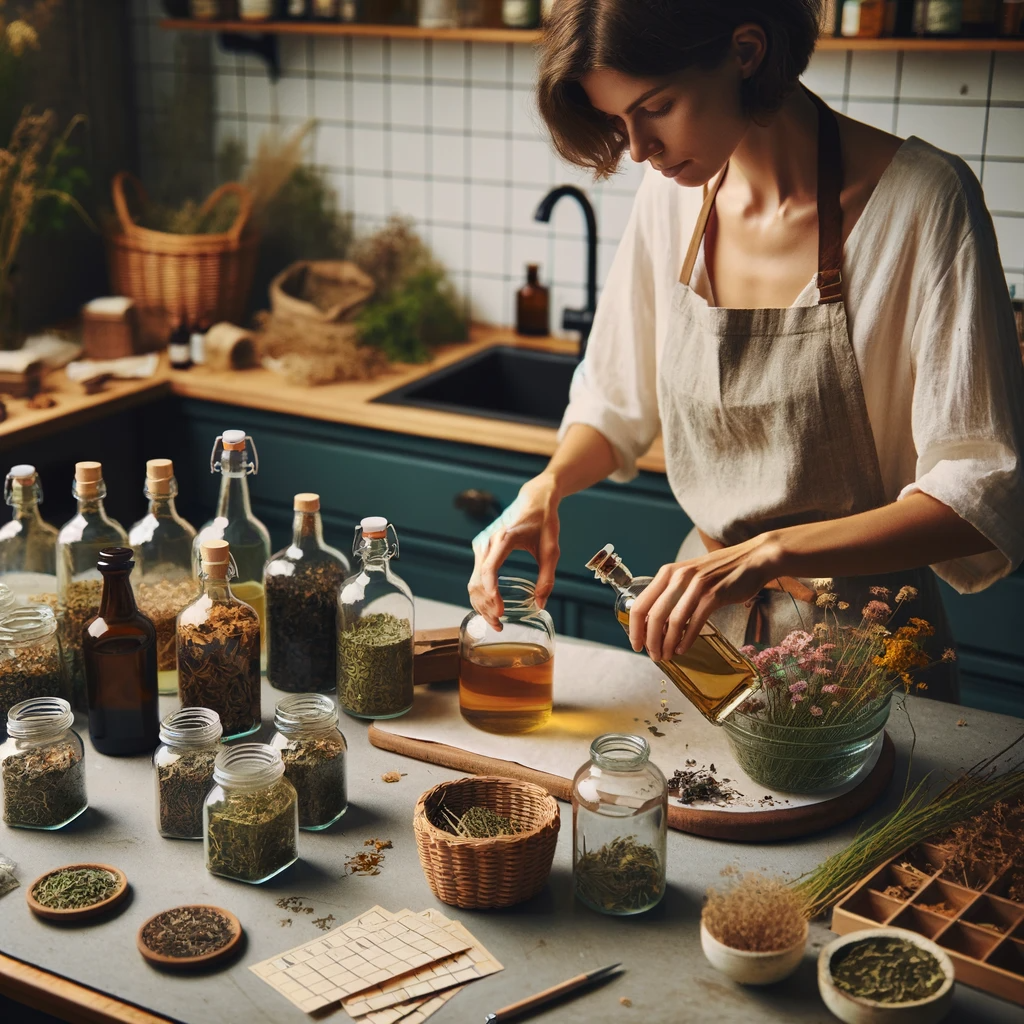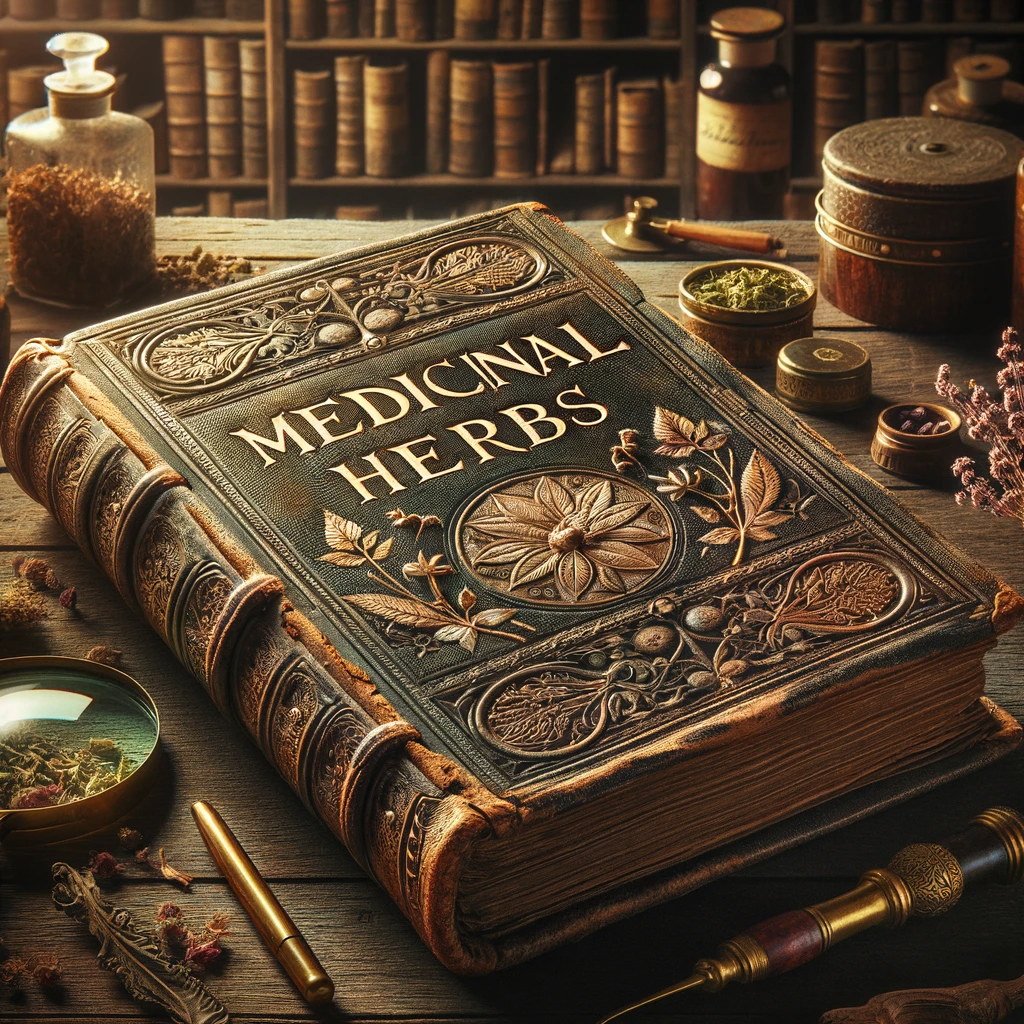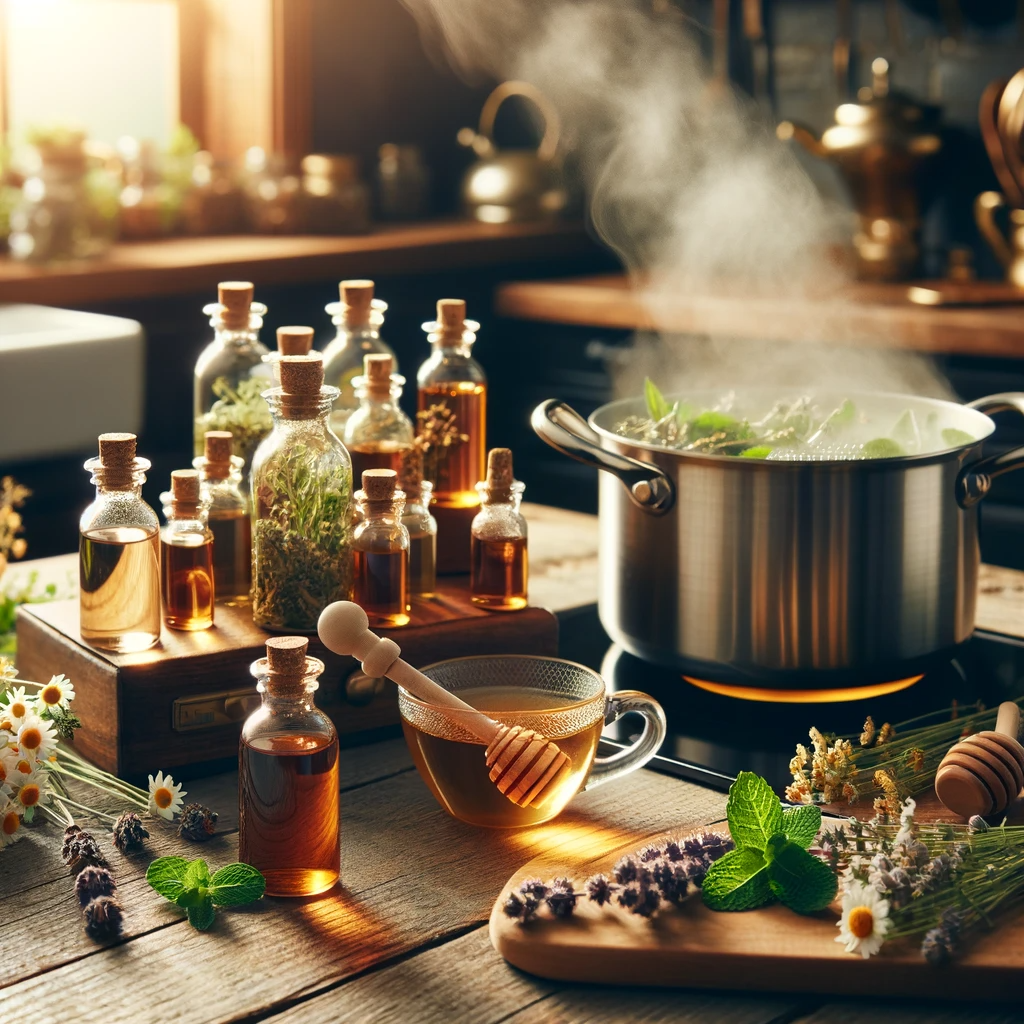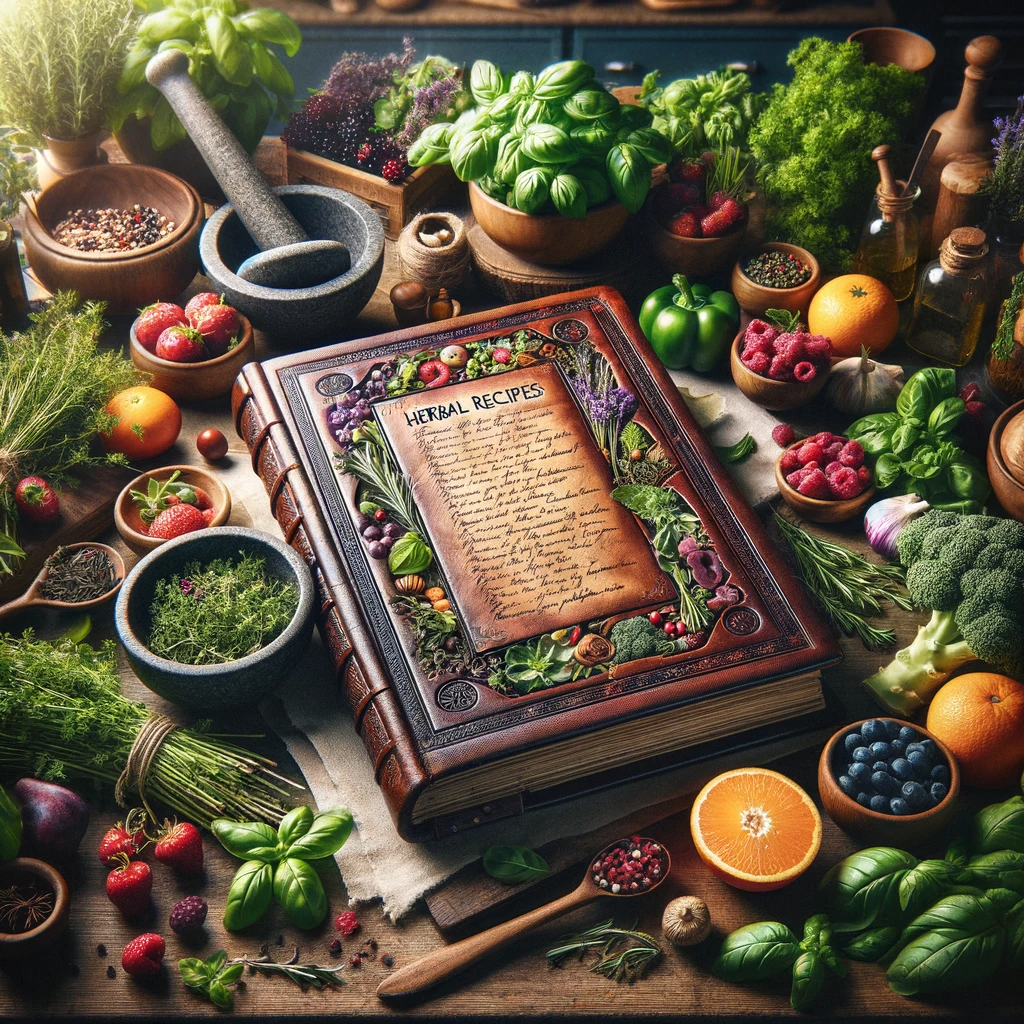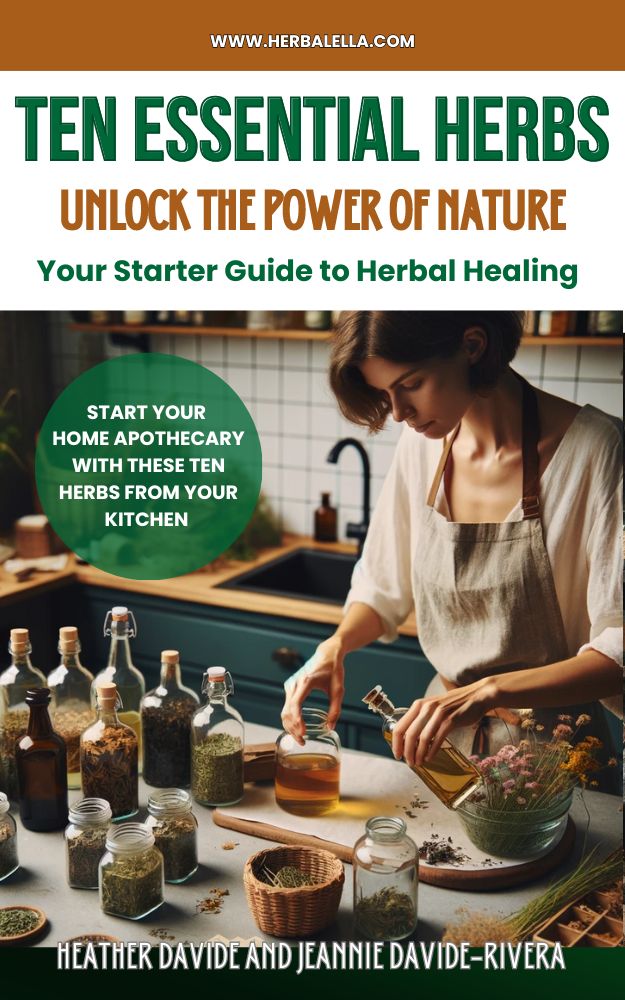This website contains affiliate links for products I use and love. If you take action (i.e. subscribe, make a purchase) after clicking a link, I may earn some tea money, which I promise to drink while creating more helpful content like this.
Is Tea Good for You? Unveiling the Health Secrets of Herbal Brews
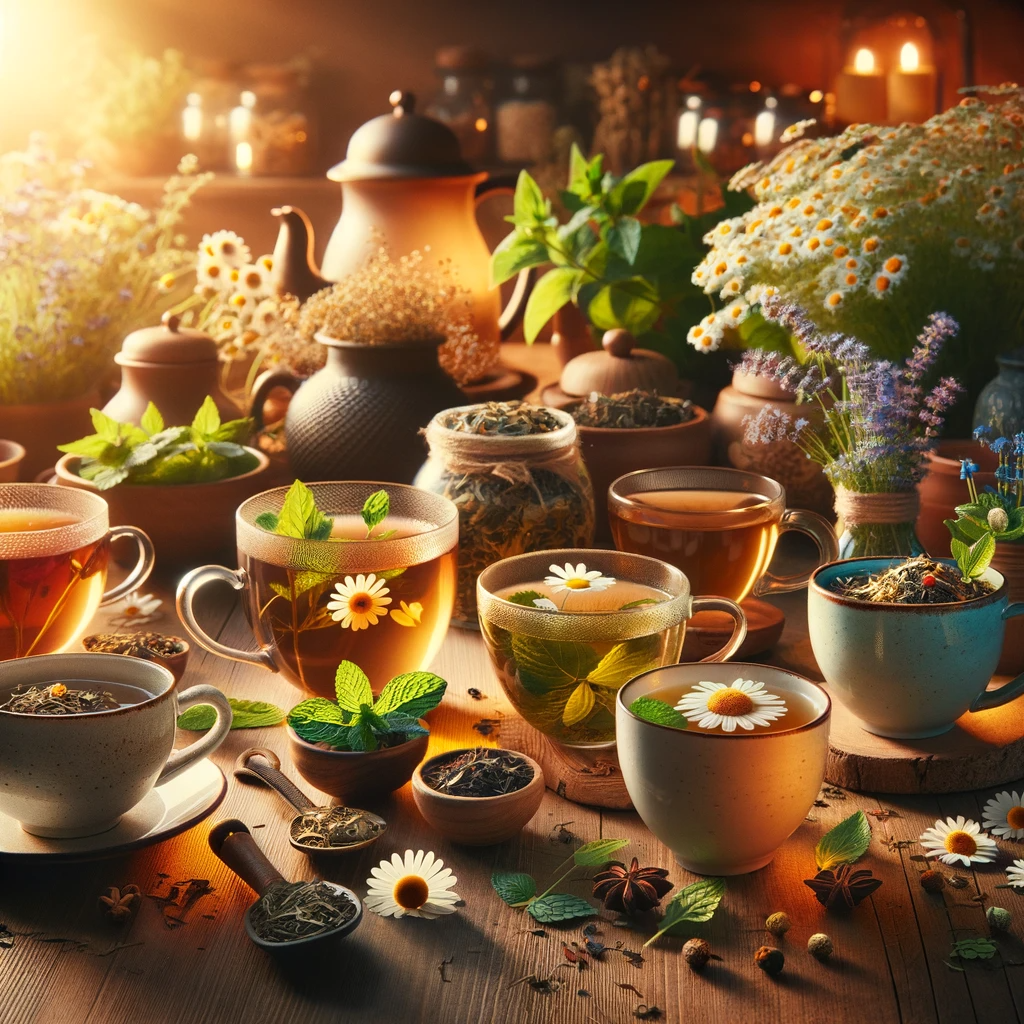
Introduction: The Timeless Elixir: Is Tea Good for You?
Tea, often revered as the elixir of health, has graced our cups and soothed our spirits for centuries. Across continents and cultures, it has been a staple, a ritual, and a remedy. At Herbal Ella, we are reigniting the flame of this ancient wisdom, guiding beginners through the enchanting world of herbal remedies. In this article, we explore a question as old as the beverage itself: Is tea good for you?
Our journey will traverse through lush fields of green tea, serene chamomile gardens, and invigorating peppermint patches to unveil the secrets held in every leaf and bud. Whether you're a tea enthusiast, a health-conscious individual, or a curious beginner, this exploration is brewed just for you. We'll steep ourselves in the rich history, the varied types, and most importantly, the myriad health benefits that these herbal brews offer. Join us in uncovering the truth behind the simple, yet profound query: Is tea good for your health?
Understanding Tea and Its Varieties
In the quest to answer "Is tea good for you?", it's essential to first understand what we mean by 'tea.' This simple word encompasses a world of flavors, aromas, and health benefits. Broadly, tea can be divided into two categories: traditional teas, derived from the Camellia sinensis plant (like green, black, and oolong teas), and herbal teas, which are infusions of various herbs, flowers, and leaves.
Traditional Teas: The Classics
- Green Tea: Harvested and quickly dried to retain its green color and natural antioxidants.
- Black Tea: Fully oxidized, known for its robust flavor and higher caffeine content.
- Oolong Tea: Partially oxidized, a middle ground between green and black tea, both in flavor and antioxidant properties.
Herbal Teas: Nature's Bouquet
Unlike traditional teas, herbal teas are not derived from the Camellia sinensis plant. They are a blend of leaves, flowers, roots, and spices, each offering unique health benefits. Popular herbal teas include:
- Chamomile Tea: Renowned for its calming properties, ideal for stress relief and sleep.
- Peppermint Tea: A refreshing choice known for aiding digestion.
- Hibiscus Tea: Rich in Vitamin C and antioxidants, often used for blood pressure management.
A Blend of Tradition and Health
Both traditional and herbal teas offer health benefits, ranging from antioxidant properties to calming effects. The key to their power lies in their natural compounds.
The Health Benefits of Tea
As we delve into the heart of our topic, "Is tea good for you?", let's explore the specific health benefits offered by various teas. Both traditional and herbal teas are not just comforting beverages but also potent sources of natural compounds that can enhance our well-being.
Green Tea: A Heart-Healthy Brew
- Antioxidants Galore: Green tea is lauded for its high concentration of antioxidants, especially catechins, which can reduce oxidative stress and inflammation.
- Heart Health: Studies have linked green tea to a lower risk of heart disease, owing to its ability to improve cholesterol levels and blood pressure.
Chamomile: The Calming Concoction
- Stress and Sleep Aid: Chamomile is a go-to herbal tea for those seeking relaxation. Its natural properties help soothe the mind and promote better sleep.
- Other Benefits: Beyond relaxation, chamomile may also aid in digestive health and menstrual pain relief.
Peppermint: Digestive Comfort in a Cup
- Digestive Health: Peppermint tea is often recommended for its soothing effect on the digestive system, helping to ease symptoms of IBS and indigestion.
- Refreshing and Invigorating: The menthol in peppermint not only refreshes the palate but also has mild analgesic properties, making it a soothing choice after meals.
Echinacea: Nature’s Immune Booster
- Immune Support: Echinacea tea is known for its ability to bolster the immune system, especially beneficial during cold and flu seasons.
- Additional Uses: It's also believed to reduce inflammation and can be helpful in wound healing.
Tea in Traditional and Modern Herbal Medicine
- Throughout history, tea has been more than just a beverage; it's been a key player in both traditional and modern herbal medicine practices.
- Modern research continues to explore and validate the health benefits of various teas, aligning ancient wisdom with contemporary science.
By understanding the specific benefits each type of tea offers, we can better appreciate their roles not just in our daily routines but also in promoting our overall health and wellness. So, is tea good for you? Absolutely, and each sip is a testament to the power of nature's pharmacy.
How to Incorporate Tea into Your Daily Routine

Now that we've explored the health benefits of various teas, the question remains: How can you incorporate these herbal elixirs into your daily life for maximum health benefits? Whether you're a beginner or a seasoned tea drinker, these tips will help you make the most of your tea-drinking experience.
Brewing the Perfect Cup
- Water Temperature Matters: For green tea, use water just before it reaches boiling point to avoid bitterness. Herbal teas often require boiling water to extract their full flavor and benefits.
- Steeping Time: Green tea needs about 2-3 minutes, while herbal teas can steep for 5-10 minutes depending on desired strength.
Creating a Daily Tea Routine
- Morning Boost: Start your day with a cup of green tea for an antioxidant-rich beginning.
- Midday Pick-Me-Up: Consider a refreshing peppermint or invigorating oolong tea in the afternoon to rejuvenate your senses without the jitters of coffee.
- Evening Wind Down: A cup of chamomile or other calming herbal tea can be the perfect way to relax before bed.
Aligning Tea with Your Health Goals
- Fitness Enthusiasts: Green tea can be a great addition to your pre-workout routine, offering a mild caffeine boost and enhancing fat oxidation.
- Digestive Health: If you frequently experience digestive discomfort, incorporating peppermint or ginger tea after meals can be beneficial.
- Immune Support: Echinacea or elderberry tea can be a great choice during cold and flu season to support your immune system.
Experiment and Personalize
- Don't be afraid to mix and match different teas to suit your taste and health needs. Herbal teas, in particular, offer a wide range of flavors and benefits, making them perfect for experimentation.
Remember, the key to benefiting from tea is consistency and mindfulness. Pay attention to how different teas affect your body and mind, and adjust your routine accordingly. By integrating tea into your daily life, you're not just enjoying a beverage; you're embracing a healthier lifestyle.
Potential Side Effects and Considerations
While exploring the benefits of tea, it's also crucial to be aware of potential side effects and considerations, especially when it comes to herbal teas. Understanding these aspects is key to safely enjoying the health benefits of tea.
Awareness of Side Effects
- Individual Sensitivities: Just like any food or drink, different bodies can react differently to various teas. Some might experience mild digestive upset or allergic reactions.
- Caffeine Content: Traditional teas (like black and green tea) contain caffeine, which can affect sleep or cause jitters in sensitive individual
Interactions with Medications
- Herbal Interactions: Some herbal teas can interact with prescription medications. For instance, St. John’s Wort can interfere with the effectiveness of some drugs.
- Professional Consultation Recommended: Always consult with a healthcare provider before adding herbal teas to your routine, especially if you're on medication.
The Importance of Moderation
- Too Much of a Good Thing: Overconsumption of certain teas might lead to negative effects. For example, too much green tea can lead to liver issues in rare cases.
- Balancing Benefits and Risks: Understanding and respecting the recommended quantities is essential for reaping the benefits while minimizing risks.
Listening to Your Body
- Observation is Key: Pay attention to how your body reacts to different teas. If you notice any adverse effects, it might be wise to reduce consumption or try a different variety.
- Individualized Approach: Remember, what works for one person may not work for another. Tailoring your tea choices to your unique health needs and preferences is important.
In summary, while tea can be a wonderful addition to your health regimen, being mindful of potential side effects and interactions is crucial. Moderation, awareness, and a personalized approach will ensure that your tea experience is both enjoyable and beneficial.
Herbal Ella's Simple Herbal Tea Blends
One of the joys of herbal teas is the ability to create your own blends, tailored to your taste and health needs. Here are a few simple recipes to get you started on your DIY herbal tea journey.
Relaxation Blend
- Ingredients: Chamomile flowers, lavender buds, and lemon balm leaves.
- Instructions: Mix equal parts of each herb. Steep one teaspoon of the blend in hot water for 5-10 minutes.
Digestive Aid Blend
- Ingredients: Peppermint leaves, ginger root, and fennel seeds.
- Instructions: Use a ratio of 2:1:1. Steep one teaspoon of this blend in boiling water for 5-10 minutes.
Immune Boosting Blend
- Ingredients: Echinacea, elderberry, and rose hips.
- Instructions: Combine in equal parts. Steep for 10-15 minutes in boiling water.
Creating your own tea blends not only allows for personalization but also deepens your connection with the healing properties of herbs. Experimenting with flavors and ingredients can be a delightful and empowering aspect of your herbal journey.
Embracing the Herbal Tea Tradition
Throughout this article, we’ve explored the varied landscape of tea and its numerous health benefits. From the antioxidant-rich green tea to the calming chamomile and the digestive-friendly peppermint, we’ve seen that the answer to "Is tea good for you?" is a resounding yes.
We’ve also delved into how to incorporate tea into your daily routine, aligning its benefits with your personal health goals, and we’ve touched upon the importance of being mindful of potential side effects and interactions.
Finally, we ventured into the creative world of DIY herbal tea blends, highlighting how you can personalize your tea experience.
We invite you to continue exploring the enchanting world of herbal teas and to dive deeper into the art of herbal remedies here at Herbal Ella. Each cup of tea is a step in a journey towards health, wellness, and a deeper connection with the natural world.
The information provided on this website is for educational purposes only, and is not FDA approved. It is not to be considered health advice. Always do your own research and seek the guidance of a qualified healthcare practitioner before working with any herb. Herbal Ella is not liable for any action or inaction you take with the materials and information provided. Read here for more information.
Get all the latest updates directly in your inbox. Plus free gifts, bonuses, contests, and exclusive ebooks!
Sign up for Herbal Ella's Newsletter Today!
Recent Articles
-
Wild Cherry Monograph: Wild Cherry: Nature's Respiratory Ally
May 02, 24 04:52 PM
Discover the healing potential of Wild Cherry with our comprehensive monograph. Explore its benefits and uses for respiratory health. -
DIY Herbal Remedies for Respiratory Health
May 02, 24 03:46 PM
Explore easy DIY herbal remedies for respiratory health with Herbal Ella. Learn to make teas, tinctures, and more to breathe better naturally -
Understanding the Respiratory System - Anatomy and Functions
May 02, 24 03:23 PM
Discover the respiratory system's anatomy and functions with clear visuals and simple explanations to keep you breathing healthily
* Privacy Policy * Disclaimer *

